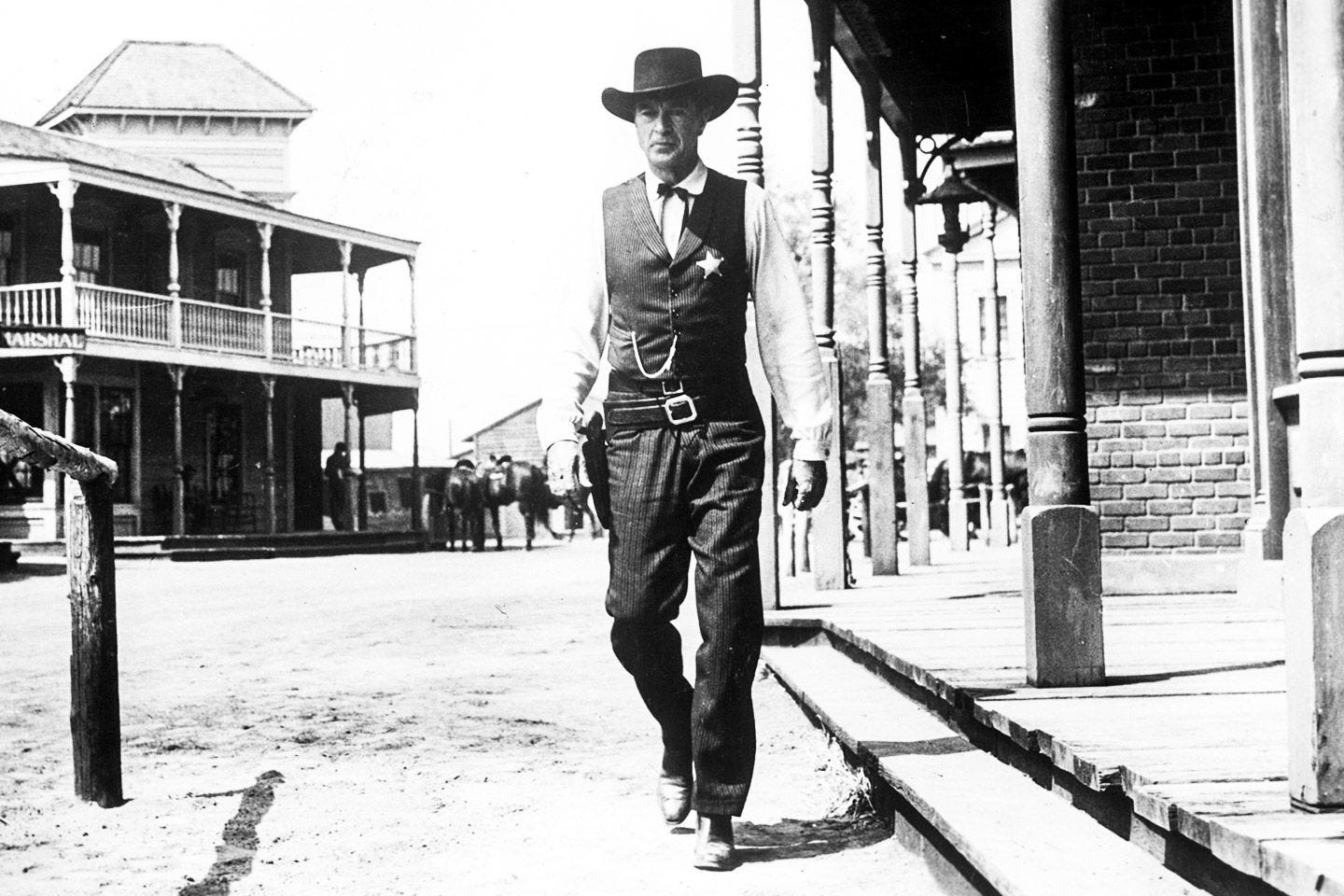One reason I hate platitudes is they cost nothing. Anyone can say “be kind” or “love thy neighbor” and pretend that their actions match those words. We all want to believe that we are good people. But are we? How can we know? We’re not reliable judges of our own character. We can put bumper stickers on our cars and signs on our lawns, but still make mostly selfish choices all day long.
One easy way way to evaluate yourself is to believe in the rule that your values should cost you something. If your values cost you nothing, and you never make a sacrifice for them, are they really values? I don’t think so. Or at least they are a weaker kind of value. Why? If nothing is sacrificed they are choices of convenience. They might be kinder choices than the alternatives you had, but if you sacrifice little for them how deep can that value really be? If your value is untested, and you can get everything you want from your day, is it really a value?
In the famous movie High Noon, a town is threatened by a violent gang. Many in the town admit that the gang is wrong and that the town should be protected, but they are afraid to take any risks. They want to have their values without any sacrifices. The lone sheriff in the town asks many of them for support, but despite their talk of what is right, they only give him excuses for why they can not help him in any way. This was more than a dramatic film: the screenwriter, Carl Foreman, wrote it in part as an allegory about his experience being abandoned by his friends during McCarthyism and the paranoia about Communism in America. It’s a story about people who can talk about values, but do not practice them because they are inconvenient.
Talking about values and virtue signaling is easy. But sacrifice is hard and often unobserved. We don’t get as much credit from others for living up to our values, as we do for merely proclaiming them on social media or t-shirts. There is the concept of NIMBY: or not in my back yard. These are people who say they want to help the homeless, or the poor, but vote against that help happening anywhere near where they live. This makes it a hypothetical value that will almost never be practiced. It’s a value of convenience. To live your values would mean YIMBY: yes in my backyard. Yes, I believe in this enough I should sacrifice something to help make it happen.
“The real person you are is revealed in the moments when you’re certain no other person is watching. When no one is watching, you are driven by what you expect of yourself.” - Ralph Marston
In the value mathematics I’m proposing, we should realize our values will cost us something and want to do it anyway. Or at least admit we have lower values than we thought. To value friendship means we decide to help our friend move, even if it means we give up part of our day off. To value community and kindness, means we donate to the food bank, instead of going out to dinner this week. It’s the sacrifice that proves the value. Without it, it’s not the same. We haven’t given as much of ourselves in support of what we claim to believe.
I admit this sets a high bar. I myself often do not live up to it. But isn’t that what values are for? They are supposed to help us be better people and see clear ways to get there. And unlike High Noon, making sacrifices for our values is not isolating. On the contrary it often helps us find others who truly share the values we have and, like us, are willing to act on them.





I agree with George Orwell who wrote, (from memory) "Every healthy society must demand a little more of its citizens than it can reasonably expect." You're on your own with that one.
Thank you!Discerning and living a morale life takes real energy. Modern culture makes it too easy to reward being blobs in easy chairs, justify choosing efficiency over connectedness on so many fronts.